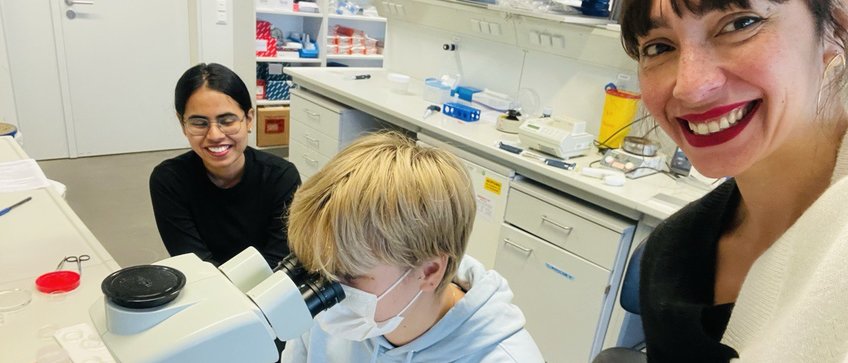
Guidance & Mentoring
Thesis Advisory Committees
Our Thesis Advisory Committees (TACs) ensure that every PhD student is guided not by one supervisor alone, but by a team of top-level scientists offering expert, interdisciplinary input. Regular TAC meetings provide clear milestones and collaborative feedback to support progress through the often non-linear path of scientific discovery. This structure fosters cross-institutional collaboration, diverse scientific perspectives, and a strong sense of community across the Dresden research campus.
Thesis Advisory Committees (TACs)
At the heart of the PhD experience in our IMPRS program is the Thesis Advisory Committee (TAC): a dedicated, interdisciplinary team that provides scientific mentorship, career guidance, and academic oversight throughout the doctoral journey.
Each PhD student is supported not by one supervisor alone, but by a carefully composed committee of at least three experienced scientists. Together, they help shape and guide the research path from the first project proposal to the final stages of the dissertation.
What makes our TAC system special?
Structured & Timely Support
Every PhD student meets with their TAC at least six times during their PhD. These meetings are scheduled in advance, standardized across all phd students in our program, and closely monitored by the Academic Office to ensure the PhD Students is getting the best environement possible in which they can flourish.Committee Composition
Each TAC includes:A primary supervisor
At least one TUD Professor
At least one DIGS-ILS faculty member
Members from at least two different institutions (e.g. MPI-CBG, MPI-PKS, IPF, TUD, HZDR)
Efforts are made to ensure interdisciplinary and gender-balanced committees
Tailored to Your PhD Stage
Each TAC meeting includes a written report, a scientific presentation, a self-assessment, and structured feedback from the TAC. They focus on a specific milestones, flexible enough for all our scentific disciplines, but tailored to the PhD stage:Project proposal
Initial report
Annual progress updates
Planning for thesis completion
Pre-submission review
Thoughtful Procedure, Meaningful Feedback
TAC meetings follow a respectful and empowering structure, including:Oral presentation & scientific discussion
Feedback from the committee (with and without the supervisor present)
Time for confidential conversations
A written evaluation and clear recommendations after each meeting
Personalised Start
Before their project begins, each PhD student designs their TAC with their supervisor. Each PhD student then discusses this plan 1:1 with the Head of the Academic Office to ensure scientific alignment and personal fit.
Why structure matters
Our TAC system doesn’t just keep projects on track and ensure clear milestones during the often-non-linear scientific process — it fosters collaboration, builds scientific networks, and ensures each and every student is surrounded by a team that is invested in their success.